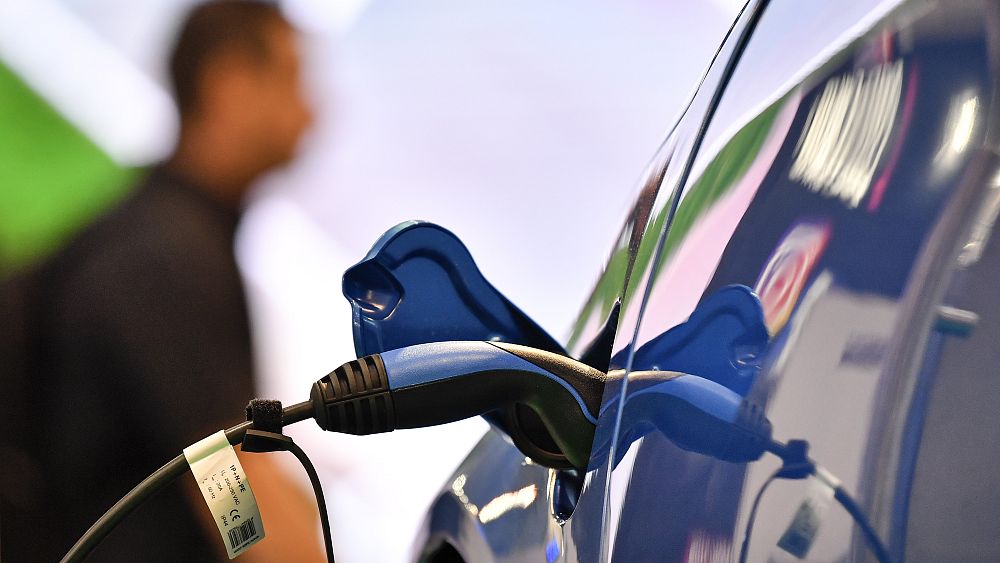
The city of Brussels wants to install up to 11,000 charging stations by 2035, as it looks ahead to the transition towards electric vehicles.
Earlier this month, the European Commission set a target of banning the sale of petrol and diesel cars by 2035, but one key challenge to making this transition a success will be the deployment of electrical charging stations.
Germany, France and the Netherlands are currently the best-equipped member states in terms of this infrastructure, but the Belgian capital now wants to boost its credentials as a leading city on the matter, as Alain Maron, Brussels’ Minister for Climate Transition, Environment and Energy told Euronews.
“We have a multi-level strategy to deploy up to 11,000 charging stations by 2035,” Maron explained. “It’s progressively underway. We’re simplifying the administration and we’re also going to divide the city into four large areas that will be awarded as a market to private operators who are motivated and who want to take them on and who will have to install these electric charging stations.”
But to achieve this, the supply of electric vehicles is going to have to come on leaps and bounds, both commercially and industrially.
According to the Commission, an internal combustion engine car is cheaper to buy because it costs 20% to 30% less than an equivalent 100% electric model.
As Olivier Duquesne, a journalist at the Monitor Automobile explains though, consumers can take other factors into account when making their choices, including in relation to taxes and maintenance costs.
“Another advantage of electric cars is the tax system. In practically all European countries, they have a tax advantage with very little tax, or even no tax at all, or purchase bonuses which are also available in certain European countries,” Duquesne told Euronews.
“And the last advantage is that the electric car, at least in terms of the engine, is much simpler, with far fewer parts and almost no friction because it works by a magnetic field, which limits the risk of breakdown, requires much less maintenance, and has a longer life. So in terms of maintenance costs…electric vehicles have a huge advantage.”
The Netherlands and Denmark are going one step further and aiming to ban the internal combustion engine by 2030, which they hope will encourage other countries to do so also.











